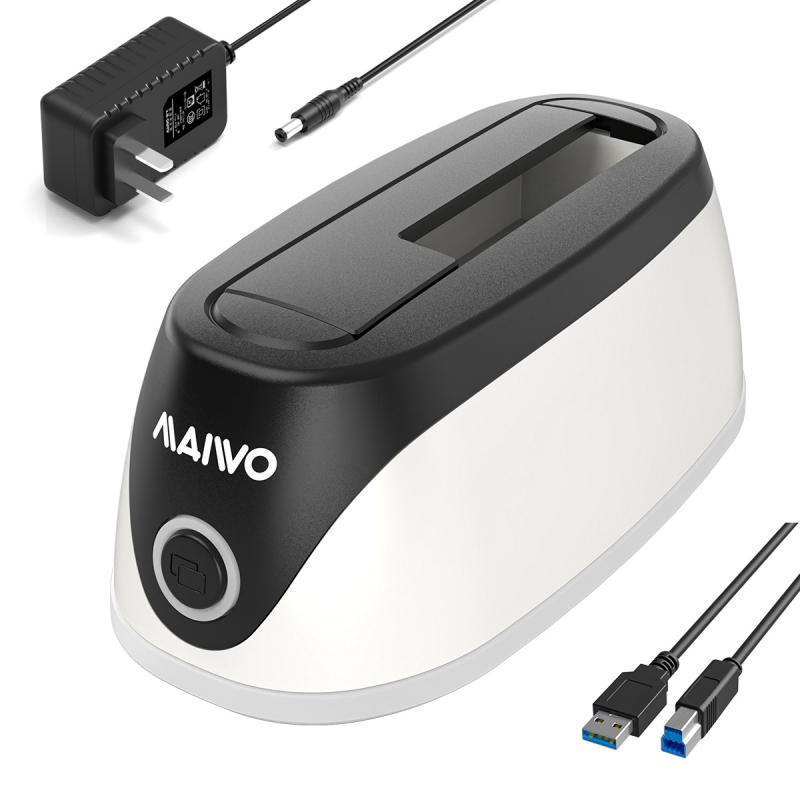In today's digital age, our devices play a central role in both work and leisure. To maximize the potential of our devices, we often require connectivity and flexibility in our setups. This is where docking stations come into play, with 1-bay docking stations being a popular choice. In this article, we will explore whether a 1-bay docking station is the right solution for your needs by examining its functions, advantages, and potential use cases.
Understanding 1-Bay Docking Stations
A 1-bay docking station, also known as a single-bay or one-slot docking station, is a device designed to enhance the connectivity and functionality of a single device. It typically features a dedicated slot or compartment where a compatible device can be securely docked. These docking stations are known for their ability to expand the ports and features available to the connected device.
Advantages of Using a 1-Bay Docking Station
Before determining whether a 1-bay docking station suits your needs, it's crucial to understand the benefits it can offer:
1. Streamlined Connectivity: Docking stations simplify the process of connecting multiple peripherals and accessories to your device. With a single connection, you gain access to a range of ports, reducing cable clutter and hassle.
2. Increased Productivity: By providing additional ports and features, a 1-bay docking station enables you to use multiple peripherals simultaneously. This can significantly boost your productivity, especially if you frequently work with external monitors, keyboards, mice, and other devices.
3. Improved Ergonomics: For laptop users, docking stations often allow you to connect to external monitors and ergonomic accessories, creating a more comfortable and efficient workspace.
4. Device Maintenance: Some docking stations offer convenient access to functions like software updates, backups, and maintenance tasks, streamlining your device management.
5. Charging Convenience: Depending on your docking station and device, you may benefit from charging capabilities, ensuring that your device is always ready for use.

Use Cases for 1-Bay Docking Stations
To determine whether a 1-bay docking station aligns with your needs, consider these common use cases:
1. Office Workstations: If you use a laptop and require a dedicated workspace, a laptop docking station can simplify connectivity and enhance productivity. It's an ideal solution for professionals who need seamless transitions between the office and remote work.
2. Home Offices: Remote workers, freelancers, and individuals with home offices can benefit from the convenience of a docking station. It allows them to effortlessly switch between work and personal devices while maintaining a clutter-free workspace.
3. Presentations: If you frequently deliver presentations, a tablet docking station can be invaluable. It enables you to connect your tablet to projectors or large displays for impactful and hassle-free presentations.
4. Multimedia Entertainment: Smartphone docking stations enhance the multimedia experience by connecting your phone to larger screens and speakers, offering a more immersive experience for gaming, streaming, and content consumption.
5. Data Management: External drive docking stations are handy for individuals dealing with significant amounts of data. They simplify data backup, recovery, and data cloning tasks, making them valuable for professionals working with large volumes of information.
Considerations Before Choosing a 1-Bay Docking Station
Before investing in a 1-bay docking station, there are several factors to consider:
1. Compatibility: Ensure that the docking station is compatible with your specific device. Different models cater to laptops, tablets, smartphones, and other devices.
2. Port Selection: Check whether the docking station provides the types and quantities of ports you need. Consider the peripherals you plan to connect to ensure the docking station meets your requirements.
3. Brand and Model: Research various brands and models to find a docking station that aligns with your device and usage preferences. Reading user reviews and expert opinions can help in this regard.
4. Budget: Evaluate your budget and compare the prices of different docking stations. While it's essential to find one that offers the features you need, it's also vital to stay within your budget.
5. Reviews and Ratings: Before making a final decision, read user reviews and ratings to gauge the performance, reliability, and user satisfaction of the docking station you're considering.
Conclusion: Making an Informed Decision
A 1-bay docking station can be a valuable addition to your technology setup, offering convenience, enhanced productivity, and adaptability. To determine if it's suitable for your needs, assess your device, daily tasks, and the benefits provided by different docking station models. With the right choice, you can unlock the full potential of your device and create a more efficient, connected, and organized workspace that caters to your specific requirements.